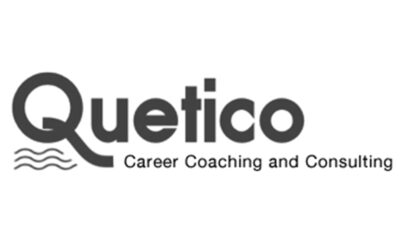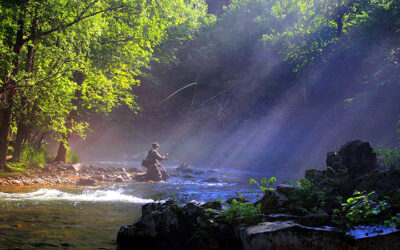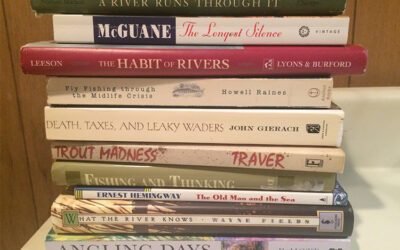Home Waters Guiding uses a set of core principles of human development as we work together to explore the lessons of fly fishing in relation to your own questions and challenges.
- Questions can be more instructive than answers. Asking the difficult questions, and having the courage to do so, may be more important than finding answers.
- Self-awareness, especially during transitions, strengthens learning and decision making. Especially during times of transition, the most useful, but sometimes difficult learning is about yourself. This is the time to challenge familiar assumptions and generate more useful beliefs and answers to questions like: Who am I? How do I relate to others? How do I contribute and give back?
- Change and uncertainty, even more than constancy and clarity, characterize life’s journey. Personal and professional growth is largely a function of how we navigate change, uncertainty, complexity, ambiguity, and tension.
- Paradox, tension, and mystery accompany our most challenging problems and dilemmas. Successful adaptation to change entails understanding the paradoxical, contradictory, and mysterious elements of the human condition that are both unsettling and illuminating, constraining and liberating. Our challenge is to find meaning in these unclear zones where most of us live and work.
- Falling down is inevitable and the only way forward. Understanding and rethinking our journey often requires confrontation with pain, fear, confusion, loss, and vulnerability in order to yield greater hope, courage, and happiness.
- Who you really are is about so much more if you are willing to look. If we look beyond who we think we are, we may discover other paths to self-awareness, including spirituality, nature, mythology, and the unconscious.
“Many of us probably would be better fishermen if we did not spend so much time watching and waiting for the world to become perfect.”
-Norman Maclean, A River Runs Through It



